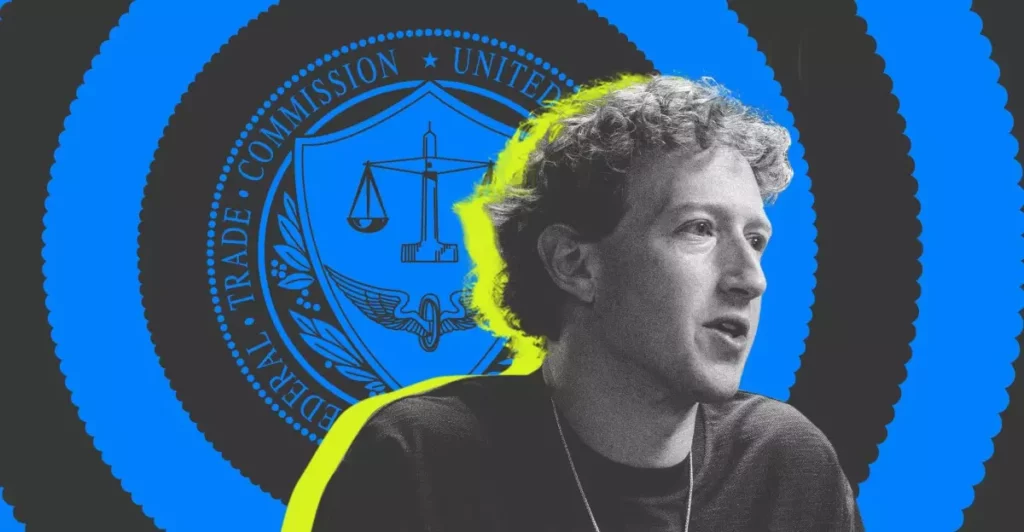In the modern digital age, few tales resonate as starkly as that of Meta, the parent entity behind Facebook, Instagram, and WhatsApp. Mark Zuckerberg, the company’s often-maligned founder, has recently been compelled to testify in a federal antitrust trial that unveils the machinations behind Meta’s formidable rise. As he navigates the courtroom’s scrutiny, a compelling narrative emerges—one that showcases not merely the victories of a tech titan, but the questionable strategies employed to eliminate competition and dominate the social media sphere. Indeed, Meta’s journey is not just about innovation; it raises profound ethical questions about market manipulation and corporate responsibility.
In this significant legal confrontation led by the Federal Trade Commission (FTC), one glaring issue emerges: the deliberate acquisitions that have fortified Meta’s stronghold. The FTC’s contention is potent—Zuckerberg’s moves to absorb Instagram and WhatsApp were rooted in a deep-seated fear of competition that would potentially undermine Meta’s supremacy. This assertion forces us to ponder—what if these platforms had flourished independently, free of Meta’s extensive grasp? Would Instagram, unencumbered by corporate restraints, have developed into an even more transformative platform, thus rekindling the essence of social media experimentation?
The Fluid Nature of Competition
Zuckerberg’s argument framing the digital marketplace as “fluid” counteracts the rigid portrait painted by the FTC. Today’s competition landscape is far more intricate than the simplistic viewpoints might allow. The arrival of rivals such as TikTok, YouTube, and iMessage complicates the notion of competition, shifting it from a straightforward rivalry to a multifaceted ecosystem. Zuckerberg’s assertion that Facebook does not occupy a singular space among social networks opens a Pandora’s box of definitions regarding what constitutes competition. This perspective prompts a deeper inquiry into the very roles these platforms play in our lives, which are not confined to merely connecting friends but extend into realms of commerce, influence, and identity formation.
As users traverse these various platforms, the overlapping functionalities among them create a competing narrative that challenges traditional distinctions. The interplay between LinkedIn and Meta, for instance, epitomizes this concept of multifaceted competition. Despite catering to different demographics, both platforms serve critical roles in professional networking and personal branding. This level of complexity suggests a vacuum in regulatory understanding when it comes to rapidly evolving digital markets.
The ‘What-Ifs’ of Acquisition Decisions
The trial raises captivating hypothetical scenarios, particularly the potential fallout had Zuckerberg succeeded in acquiring Snapchat back in 2013. Spiegel’s refusal of a $6 billion buyout could well be characterized as a decisive turning point. It allowed Snapchat to evolve independently, a move that inadvertently fostered genuine competition. These musings serve to underline how critical corporate decisions can shape not only the trajectory of individual firms but also the entire competitive landscape.
If Zuckerberg had ventured along a more unorthodox path—such as those fleeting thoughts of radically reshaping user experiences—could Meta have nurtured a less monotonous community? Perhaps this would have resulted in not just an engaging platform but also a thriving ecosystem resilient to the staleness perceived by many users today. By understanding user sentiments more intuitively, Meta might have progressively transformed the social media landscape—an insight that places Zuckerberg’s ambitions in a new light.
The Ethical Quandaries of Advertising
What also drew my attention, amidst the courtroom drama, was Zuckerberg’s candid acknowledgment of Meta’s increasingly fraught relationship with advertising. His suggestion of a transition toward purely advertisement-driven feeds raises critical moral dilemmas about the balance between user experience and revenue generation. It beckons the question of whether these choices stem from robust confidence in user engagement or a more profound anxiety over dwindling alternatives in a monopolized market.
Zuckerberg’s defense—characterizing his company’s acquisitions as innovative ventures rather than classical monopolistic actions—merits a rigorous examination. Such assertions ignite essential discussions about advertising ethics in a landscape fraught with limited competition. As users’ choices dwindle under the shadow of market consolidation, we face a shared philosophical challenge: To what extent should user engagement dictate corporate strategies when profit motives heavily influence decisions?
Ultimately, as Meta’s saga unfolds, the implications of Zuckerberg’s choices extend beyond the immediate legal ramifications. They serve as cautionary notes for executives across industries, underscoring the far-reaching effects of boardroom decisions in today’s interconnected world. The ongoing trial not only highlights Meta’s current practices but also compels us to reflect on the numerous trajectories that could have altered the reality we now inhabit.









Leave a Reply